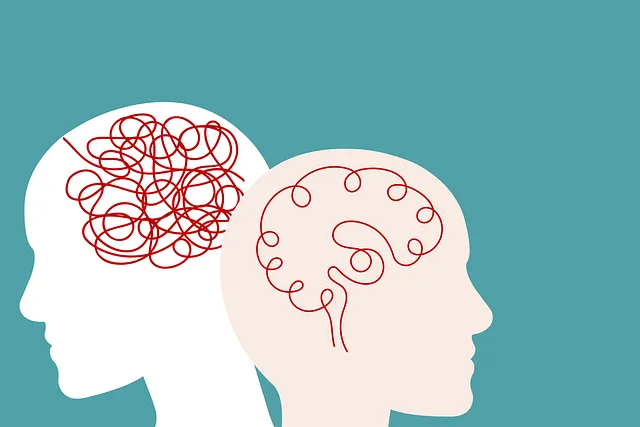Depression, a common global issue according to Kaiser Permanente, is treatable with early recognition of signs like changes in appetite and sleep patterns. The Mental Health Awareness movement promotes open dialogue, and strategies like communication and Mental Wellness Coaching encourage prompt help-seeking. Kaiser Permanente's superior depression prevention includes integrated counseling, therapy, medication management, education, and a Mental Wellness Podcast Series. Risk Management Planning ensures safe, high-quality care. Adopting healthy habits such as exercise, balanced diets, and quality sleep, along with mindfulness meditation and addressing past traumas, are powerful tools in prevention and management. Building resilience through strong support systems, mindfulness, and positive thinking further reduces depression risk.
Depression is a prevalent yet treatable condition, and proactive strategies can play a pivotal role in prevention. This article explores various avenues to combat this mental health challenge, focusing on early recognition and evidence-based practices. We delve into understanding depression’s nuances, highlighting the significance of identifying warning signs through Kaiser Permanente’s comprehensive mental health services. Additionally, we uncover lifestyle modifications, resilience-building techniques, and the power of support systems, all contributing to a superior approach to depression prevention.
- Understanding Depression: Recognizing the Red Flags
- The Role of Kaiser Permanente Mental Health Services
- Lifestyle Changes for a Stronger Mindset
- Building Resilience: Coping Mechanisms and Support Systems
Understanding Depression: Recognizing the Red Flags

Depression is a complex mental health condition that impacts millions worldwide, but recognizing its signs early can be life-saving. The Kaiser Permanente organization emphasizes the importance of understanding depression as a legitimate and treatable illness. It often presents with persistent feelings of sadness, hopelessness, and loss of interest in activities once enjoyed. Individuals experiencing depression may exhibit changes in appetite, sleep disturbances, fatigue, difficulty concentrating, and recurrent thoughts of death or suicide.
Recognizing these red flags is crucial in promoting mental wellness. The Mental Health Awareness movement encourages open conversations about mental health issues, fostering an environment where individuals feel comfortable seeking help. Through communication strategies, people can learn to identify subtle shifts in mood and behavior that may indicate a struggle with depression. Early intervention through programs like Mental Wellness Coaching can significantly impact prevention and recovery.
The Role of Kaiser Permanente Mental Health Services

Kaiser Permanente Mental Health Services plays a pivotal role in depression prevention by offering comprehensive care and support tailored to individual needs. Their superior services encompass a range from counseling and therapy sessions to medication management, all accessible through their integrated healthcare platform. This holistic approach ensures that patients receive not just treatment but also education on maintaining mental wellness.
The Mental Wellness Podcast Series Production hosted by Kaiser Permanente further enriches their offerings. These podcasts provide valuable insights into various aspects of mental health, including effective stress reduction methods as well as strategies for managing and preventing depression. Additionally, Risk Management Planning for Mental Health Professionals is a crucial aspect addressed, ensuring that those on the front lines are equipped with the best tools and resources to deliver quality care while minimizing risks.
Lifestyle Changes for a Stronger Mindset

Adopting a healthy lifestyle is a powerful tool in preventing and managing depression, as highlighted by Kaiser Permanente’s mental health resources. Simple yet profound changes can significantly impact your mindset and overall well-being. Regular exercise, for instance, boosts mood and reduces symptoms of depression; it stimulates the release of endorphins, nature’s very own mood elevators. A balanced diet, rich in vitamins and minerals, supports brain function and energy levels, which are vital for maintaining a positive outlook. Additionally, prioritizing quality sleep allows your mind and body to rest and recover, ensuring you wake up each day with renewed strength against depressive tendencies.
Mindfulness meditation is another evidence-based practice recommended by mental health experts. It involves focusing on the present moment without judgment, helping individuals develop a deeper sense of self-awareness and emotional regulation. This ancient technique has been integrated into many Kaiser Permanente mental health education programs designed to empower individuals with tools for stress reduction and improved mental resilience. Moreover, addressing past traumas through Trauma Support Services can also be transformative, as unresolved trauma is often linked to depression.
Building Resilience: Coping Mechanisms and Support Systems

Building resilience is a powerful tool in the prevention of depression. It involves cultivating inner strength and developing effective coping mechanisms to navigate life’s challenges. According to Kaiser Permanente mental health experts, fostering resilience starts with recognizing and strengthening one’s support systems. This includes surrounding oneself with understanding and empathetic individuals who can provide a safe space for expression and guidance during tough times.
Additionally, practices like mindfulness meditation and positive thinking play a significant role in building resilience. These techniques help individuals stay grounded, improve their emotional regulation, and foster a sense of calm even amidst stress. By integrating these coping mechanisms into daily routines, one can enhance their ability to adapt to life’s curveballs, thereby reducing the risk of depression.
In summary, preventing depression involves a multi-faceted approach. Understanding the red flags of depression and seeking support from superior mental health services like Kaiser Permanente can significantly aid in early intervention. Making positive lifestyle changes and building resilience through effective coping mechanisms and robust support systems are essential strategies to foster mental well-being. By integrating these practices, individuals can strengthen their mindset and reduce the risk of depression.






